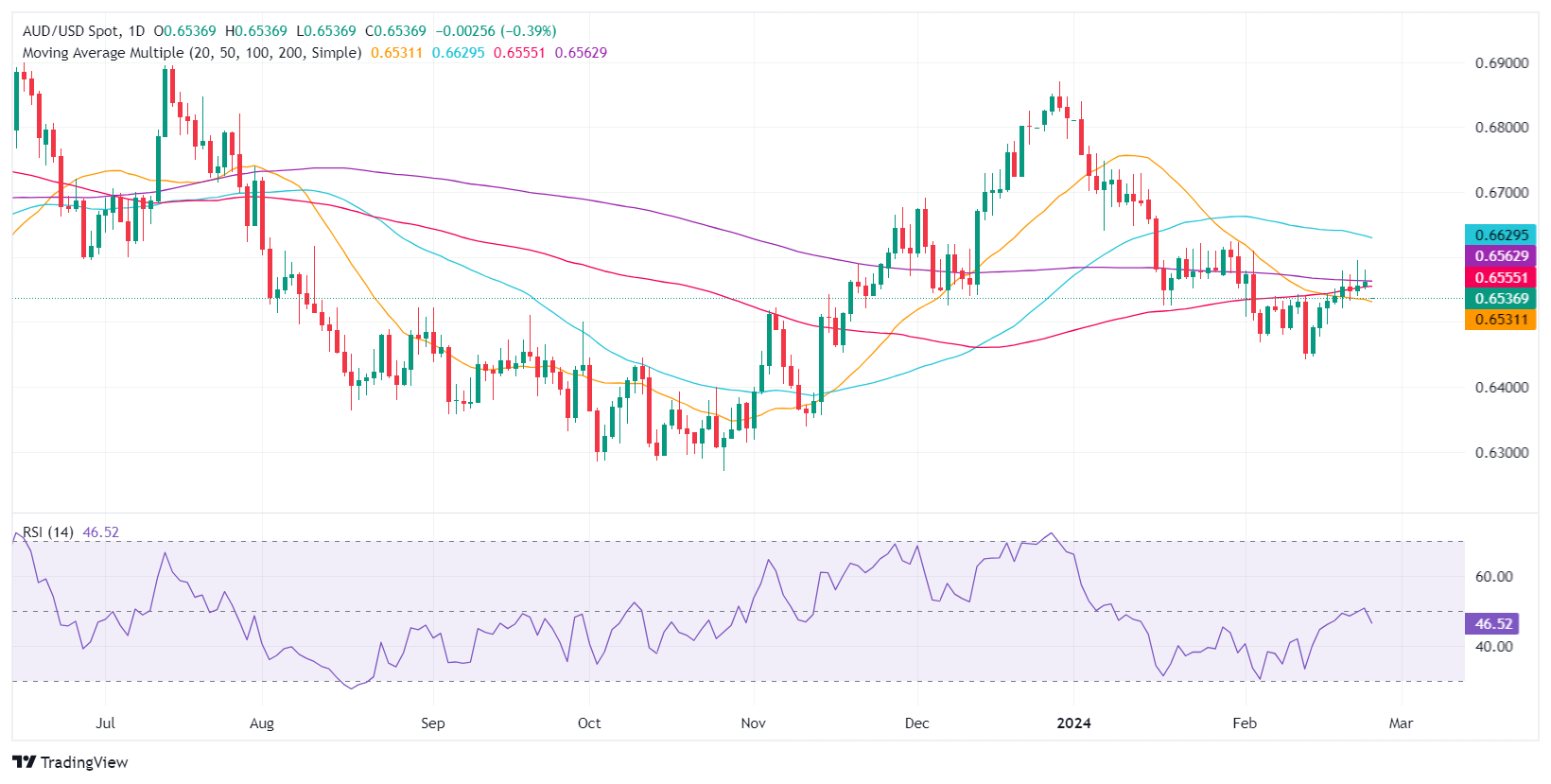AUD/USD dips amid rising US bond yields, traders await US Durable Goods Orders

- AUD/USD drops 0.35% amid mixed market sentiment and rising US Treasury yields, focus on key US and Australian data releases.
- Anticipation for Fed speeches and economic reports such as Durable Goods Orders and Consumer Confidence to influence rate cut expectations.
- Australian Dollar pressured from declining iron ore prices and forthcoming data on inflation, housing, and retail sales.
The AUD/USD slid 0.35% on Monday amid a mixed market mood and a rise in US Treasury bond yields. Investors bracing for the release of crucial economic data in the United States (US) and Australia were the main reason behind the pair’s price action, even though the Greenback posted solid losses. Nevertheless, as the Asian session begins, the pair exchanges hands at 0.6538, down 0.03%.
AUD/USD dives on mixed economic mood
Wall Street ended Monday’s session with a mixed tone as traders turned cautious. Eight Federal Reserve speakers would cross the wires during the week, while the release of Durable Goods Orders could support the Fed’s doves as orders are estimated to have plunged in January. Besides that, housing data and Consumer Confidence can reemphasize the Fed’s need to cut rates later in the year. Late in the week, the Fed’s preferred gauge for inflation, the Personal Consumption Expenditure (PCE) will update the inflation status and could rock US Treasury bond yields as expectations for rate cuts can adjust.
On Australia’s front, the economic docket is absent as AUD/USD traders brace for Tuesday’s release of inflation figures for the last quarter of 2023. The day after that, investors are eyeing the release of housing data, retail sales, and credit data.
The AUD/USD has remained pressured as Iron ore prices fell to their lowest in four months, as inventories in China pile up, amid the struggle of the property market.
AUD/USD Price Analysis: Technical outlook
The AUD/USD diving to a new four-day low opened the door for a deeper pullback after failing to reclaim the 200-day moving average (DMA) at 0.6560. If sellers push the spot price below the 0.6500 figure, a leg-down is seen with the next support level at the February 5 low of 0.6468, followed by the February 13 cycle low of 0.6442. Traders must be aware of this key level, as the pair could drop to 0.6400. Otherwise if buyers lift the exchange rate above the 200-DMA, look for a test of the 0.6600 mark.
